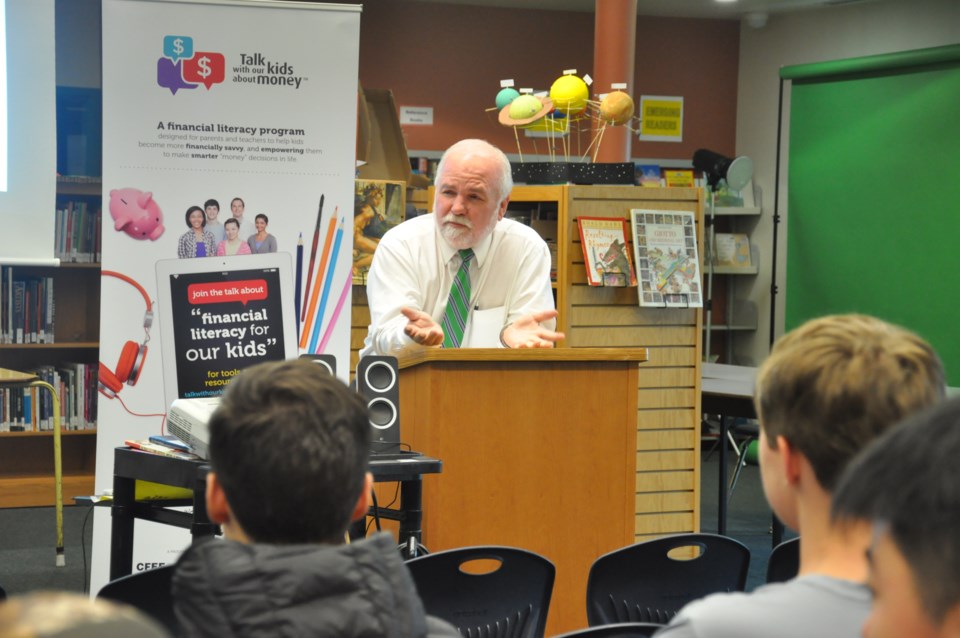National non-profit organization Talk With Our Kids About Money was at Richmond this week to educate students about money management and financial literacy.
A talk given by the organization’s president, Gary Rabbior, at Burnett Secondary School attracted more than 20 students. This was part of an event series to celebrate B.C.’s Talk With Our Kids Day on Wednesday, April 18.
“Basically, we are trying to help young people prepare for their financial futures, and for all the different forces and factors that are going to be pressuring them to make decisions,” said Rabbior.
Although most students don’t have financial independence yet, Rabbior said it is important to help them start building good habits at an early stage.
“Teaching them how to stay in control is much easier than rescuing them when they are out of control later,” said Rabbior.
He noted that financial education can start as early as five years old.
“For example, one of the things parents talk about all the time with a five-year-old is how they say, ‘I want, I want, I want.’ But you can try to help them develop patience,” said Rabbior.
“You can say to your child, ‘if you want it, that’s OK, you can have it now, or you can have that, which is something you may want even more later, and we will work with you, putting some money in your piggy bank.’”
In this way, parents can help their children understand that they can make fast decisions, or that they can give some thought to a decision and make a plan, according to Rabbior.
He said young people nowadays are facing more financial challenges than previous generations as the cost of housing and living are so high in areas where jobs are concentrated.
Thus, having good financial management ability becomes even more essential.
“For example, when students make decisions on taking a student loan to study a major in university, it could help to think what they can get from that degree and if the return will exceed the investment,” said Rabbior.
He said this is the No.1 advice he offers to everybody — every single decision entails a trade-off.
“Before you make a decision, if you think about what you are potentially giving up, either today or in the future, you will make better decisions,” said Rabbior.
He added that another key piece of advice he would give is to know your own limits and stay in control of your life.
“There are going to be so many people, institutions and companies motivated by their own efforts to get you to buy something. People are so sophisticated doing that,” said Rabbior.
“Don’t let people be telling you that you should have a credit line of $20,000 when you are comfortable with $5,000; if somebody offers you a $600,000 mortgage, and you only want $300,000, then get the $300,000 mortgage.
“Don’t be making decisions on the basis of what others are willing to provide you. They are often protected. When you can’t pay the mortgage, they just take your property back. You gotta look after yourself and know your own limits, and stay in control.”
School trustee Jonathan Ho, who invited the organization to Richmond three years ago, said he believes financial education is necessary and hopes Richmond will have more of this in the future.
“When I was working in the finance industry, I met so many people who made big...mistakes, but a lot of them could actually have been avoided if they were educated earlier,” said Ho.



